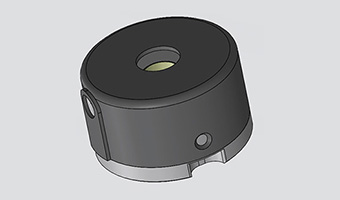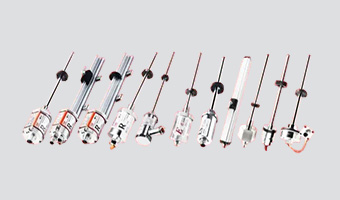Motor Encoder: The Key to Precision Motion Control
Apr 23,2025
By:Epoch
A motor encoder is an essential sensor in modern automation, providing real-time feedback on the position, speed, and direction of an electric motor’s shaft. This feedback enables precise control and monitoring, making motor encoders indispensable in applications ranging from industrial automation and robotics to CNC machinery and conveyor systems
What is a Motor Encoder?
A motor encoder is a type of rotary encoder specifically adapted to measure the rotation of a motor shaft. By converting mechanical motion into electrical signals, it allows the motor control system to adjust speed, position, and direction with high accuracy. Motor encoders are most commonly based on optical or magnetic sensing technologies and can be integrated as shafted, thru-bore, hollow-bore, or modular solutions to suit various motor designs.
How Does a Motor Encoder Work?
Motor encoders typically consist of a code disc attached to the motor shaft and a sensor that reads the disc’s pattern as it rotates. When the shaft turns, the encoder generates electrical signals—either pulses or unique codes which are interpreted by the control system to determine:
· Position (absolute or relative)
· Speed (RPM)
· Direction of rotation
This real-time feedback is crucial for closed-loop control, ensuring motors operate as intended and respond quickly to changes in load or command.
Types of Motor Encoders
Motor encoders are broadly categorized into incremental and absolute types:
Encoder Type | Description | Best Use Cases |
Incremental | Generates pulses as the shaft rotates, providing relative position and speed feedback. Requires a reference point after power loss. | Speed monitoring, conveyor systems, general automation. |
Absolute | Provides a unique digital code for every shaft position, ensuring exact position is always known—even after power loss. Available as single-turn (within one revolution) or multi-turn (across multiple revolutions). | Robotics, CNC machines, safety-critical applications. |
Applications of Motor Encoders
Motor encoders are widely used in:
· Servo motors for precise position and speed control
· Robotics for multi-axis motion and feedback
· Conveyor systems for speed and position monitoring
· Cut-to-length and spooling machines for accurate material handling
· Packaging, printing, and medical devices for reliable automation.
Key Benefits
· High Precision: Enables accurate positioning and speed regulation
· Reliability: Provides consistent feedback for stable system performance
· Versatility: Suitable for various motor types and harsh environments
· Real-Time Feedback: Supports dynamic adjustment for optimal results.
Choosing the Right Motor Encoder
Selecting the right motor encoder depends on application requirements such as resolution, environmental conditions, feedback type (absolute vs. incremental), and integration needs. Proper selection ensures reliable operation, longevity, and efficiency in your automation system.
> EPOCH ELECTRONIC specializes in supplying high-performance motor encoders for servo motors, including both absolute and incremental types. Our products are tailored to your needs, delivering precise feedback and robust performance for demanding industrial environments.


























